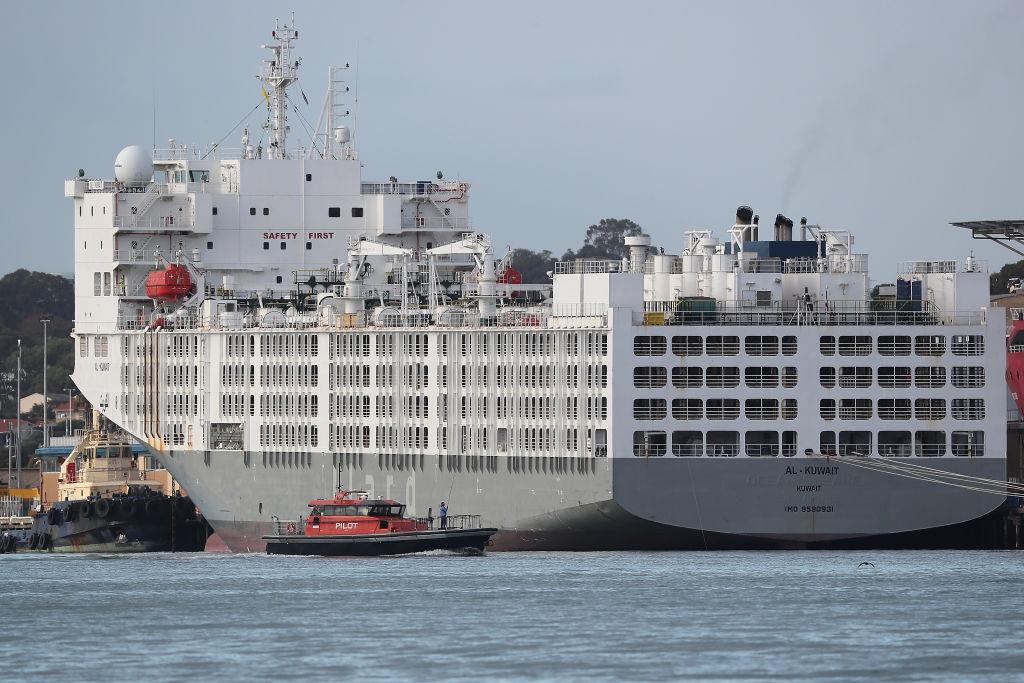A ship carrying thousands of sheep and cattle that spent almost a month at sea has returned to a West Australian port while it waits to hear if the animals can be re-exported.
About 16,500 livestock have been packed aboard the MV Bahijah since Jan. 5, when it sailed for the Middle East from Fremantle before being ordered to abandon its voyage due to Houthi rebel attacks in the Red Sea.





